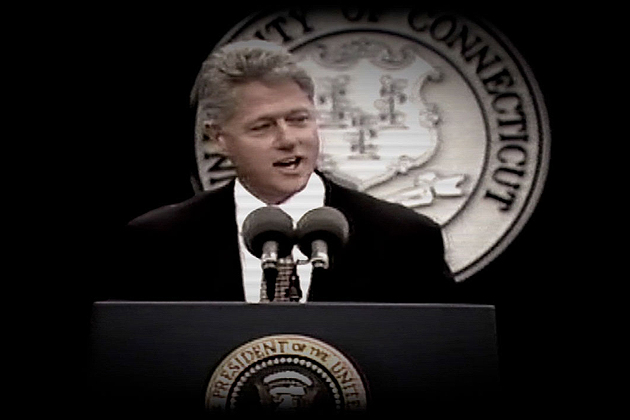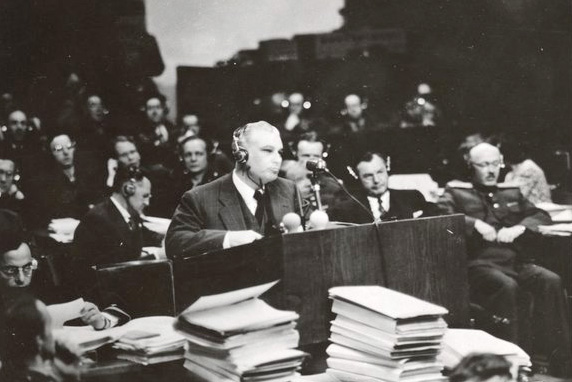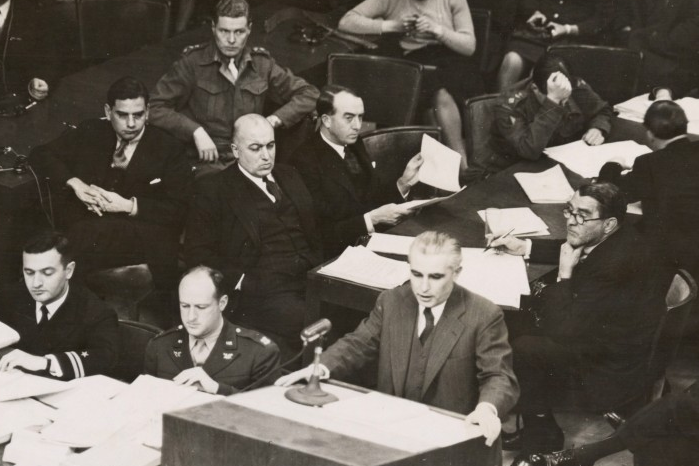The Dodd Center for Human Rights honors the public service and human rights legacies of Senator Thomas J. Dodd and Senator Christopher J. Dodd. Beginning with Thomas Dodd’s service as executive trial counsel to the International Military Tribunal at Nuremberg and carrying through to Christopher Dodd’s leadership in the drafting and adoption of the Dodd-Frank Act and the Affordable Care Act, father and son have worked to advance justice and dignity for over 60 years.
Home to robust academic programs and innovative external engagement in human rights, The Dodd Center houses the Gladstein Family Human Rights Institute and its Dodd Human Rights Impact programs, the University Library’s Archives & Special Collections, and the Center for Judaic Studies & Contemporary Jewish Life.
First established in 1995 as the Thomas J. Dodd Research Center to honor Senator Thomas J. Dodd who sought justice in the wake of the unspeakable tragedies of the Holocaust, the building holds and archives his personal papers from his role as a prosecutor at the Nuremberg Trials. On October 15, 2021, President Joe Biden rededicated the building as The Dodd Center for Human Rights to recognize the legacies of both Thomas J. and Christopher J. Dodd.
Christopher J. Dodd's lifelong commitment to human rights is strongly evidenced by the laws and policies he co-authored during his tenure as Senator. Through legislation such as the Dodd-Frank Wall Street Reform and Consumer Protection Act, which requires companies to disclose their use of conflict minerals, Senator Dodd’s work continues to uphold and protect human rights globally.
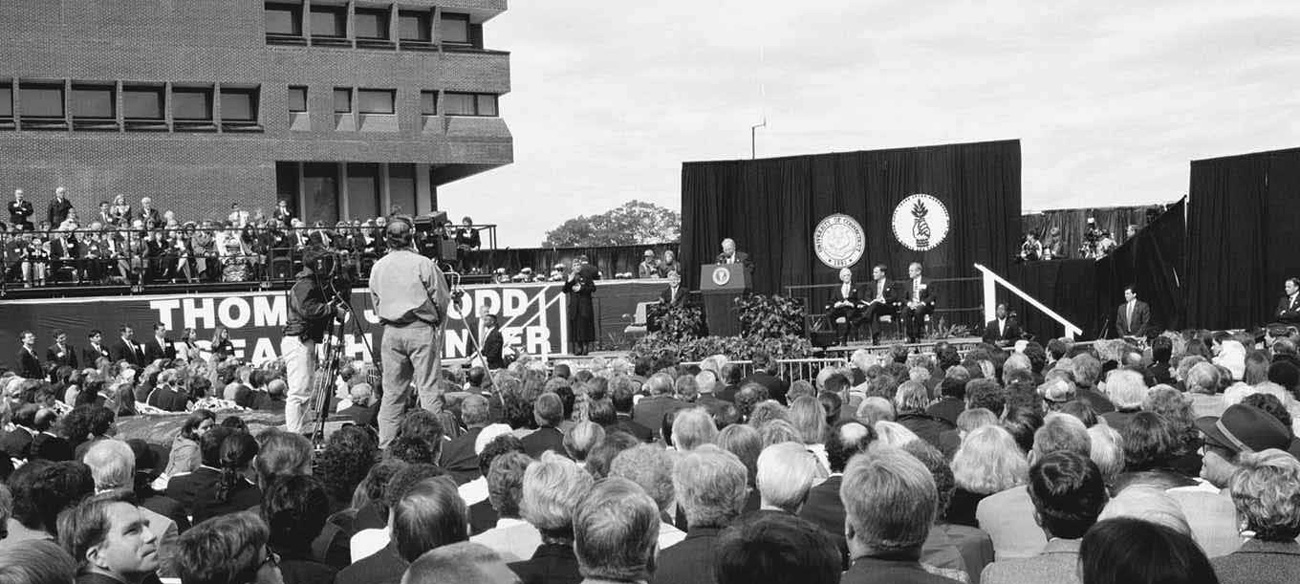
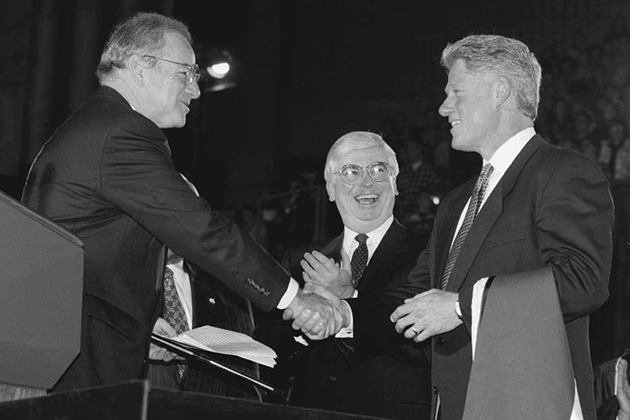
The Center's History
The building was originally dedicated as Thomas J. Dodd Research Center in 1995 by President William J. Clinton and Senator Christopher J. Dodd to honor Thomas Dodd’s service as executive trial counsel in the International Military Tribunal, the first of the Nuremberg War Crimes Trials. In the year that followed, known as the Dodd Human Rights Year, UConn hosted an international conference examining the events surrounding the Holocaust and Nuremberg Trials and offered programming dedicated to human rights violations in Latin America, Tibet, and Cambodia, disability rights in North America, the internment of Japanese-Americans during the Second World War, and the plight of African Americans involved in the Tuskegee Study. The Dodd Year began with an address from Nobel Laureate Elie Wiesel and concluded with a speech from former president of the Soviet Union Mikhail Gorbachev. Over the past 25 years, the building has become a center of archival research and UConn’s diverse human rights programs.
Headlines Over the Years
The Dodd Center: A Home for the Discussion of Human Rights
October 3, 2011 | Bret Eckhardt
The Thomas J. Dodd Research Center was opened by incumbent President Bill Clinton 16 years ago, establishing a focal point for the study of human rights at the University and in the state.
Historic Nuremberg Papers of Sen. Thomas Dodd Go Digital
February 13, 2014 | Kenneth Best
Some 50,000 pages of documents from the Nuremberg Trials will be made available to scholars from around the world.
Reflections on the Dodd Center’s Namesake 75 Years After Landmark War Crimes Trials
November 30, 2020 | Christopher J. Dodd
Sen. Chris Dodd reflects on his father's service as a prosecutor in the Nuremburg war crimes trials 75 years after they began.
